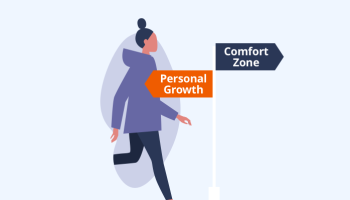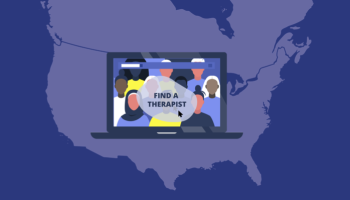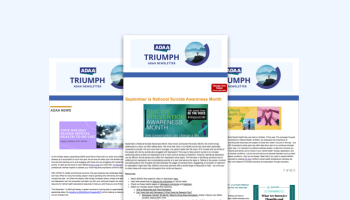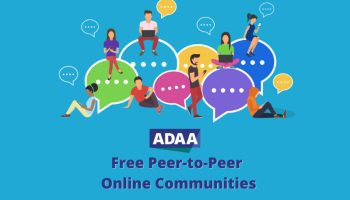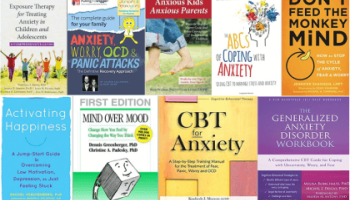Navigating Anxiety in Women with ADHD: Understanding, Managing, and Thriving
Navigating Anxiety in Women with ADHD: Understanding, Managing, and Thriving
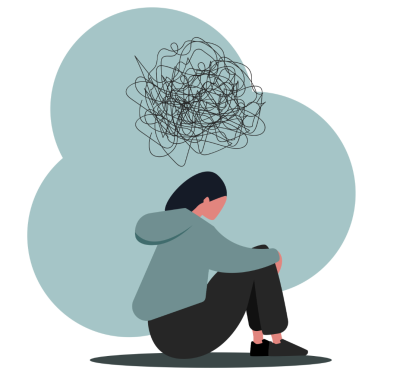
Living with ADHD (Attention Deficit Hyperactivity Disorder) as a woman can be challenging in many ways, especially when it comes to managing anxiety. ADHD is often misunderstood and underdiagnosed in women, leading to unique struggles that can make everyday life overwhelming. Anxiety in women with ADHD doesn’t just feel like the typical nervousness before a big event; it can be a constant, gnawing presence that affects nearly every aspect of life.
In this blog post, we’ll explore how anxiety manifests in women with ADHD, how it feels and presents, and what you can do to manage it effectively. By focusing on self-awareness, self-discovery, self-regulation, self-love, and self-advocacy, you can take meaningful steps toward decreasing or managing your anxiety and boosting your confidence.
How Anxiety Feels and Presents in Women with ADHD
Anxiety in women with ADHD is often intertwined with the symptoms of ADHD itself, making it difficult to distinguish where one ends and the other begins. Here’s a closer look at how this anxiety might feel and how it can present:
1. Overwhelming Sensory Experiences
Imagine walking into a room where the lights are too bright, the music is too loud, and there are too many people talking at once. For women with ADHD, this sensory overload can trigger intense anxiety. Everyday environments can become minefields of overwhelming stimuli, making it hard to focus, think clearly, or even breathe steadily.
2. Constant Worry and Overthinking
Anxiety often manifests as a relentless inner dialogue of worry. "Did I forget something important? Am I going to mess up at work? Will people notice I’m struggling?" These thoughts can spiral out of control, feeding into the ADHD tendencies of overthinking and difficulty in prioritizing.
3. Fear of Failure and Rejection
Women with ADHD may develop a deep-seated fear of failure and rejection due to past experiences where their symptoms were misunderstood or criticized. This fear can lead to anxiety about trying new things, taking risks, or even engaging in social interactions, as the possibility of being judged or failing looms large.
4. Physical Symptoms
Anxiety in ADHD can also manifest physically. Rapid heartbeat, shallow breathing, muscle tension, headaches, and gastrointestinal issues are common. These symptoms can be distressing, further fueling the anxiety cycle.
5. Procrastination and Perfectionism
While these might seem like opposing behaviors, they’re often two sides of the same coin in women with ADHD. The anxiety of wanting to get everything "just right" can lead to procrastination out of fear that it won’t be perfect, which in turn fuels more anxiety.
What You Can Do: 5 Quick Tips to Decrease Anxiety and Increase Confidence
Managing anxiety when you have ADHD isn’t easy, but it is possible. By focusing on key areas like self-awareness, self-discovery, self-regulation, self-love, and self-advocacy, you can start to take control of your anxiety and build the confidence you need to thrive.
1. Self-Awareness: Recognize Your Triggers
The first step to managing anxiety is understanding what triggers it. Keep a journal or use a note-taking app to record situations that make you anxious. Do certain environments, tasks, or interactions increase your anxiety? By identifying these triggers, you can begin to anticipate and prepare for them. Self-awareness also involves recognizing how your ADHD symptoms might be exacerbating your anxiety. For example, are you overloading your schedule? Are you setting unrealistic expectations for yourself?
2. Self-Discovery: Embrace Your Strengths
Women with ADHD often spend a lot of time focusing on their perceived weaknesses. However, self-discovery is about identifying and embracing your strengths. Maybe you’re incredibly creative, have a unique problem-solving ability, or are great at thinking outside the box. By focusing on what you do well, you can start to build a sense of pride and confidence that counteracts anxiety. This process might involve trying new activities, exploring hobbies, or seeking feedback from others who appreciate your strengths. Self-discovery also entails finding out what those triggering situations mean for you personally. If a place feels too bright, validate those emotions and then start focusing on what you can do to help yourself cope better or more successfully in these situations.
3. Self-Regulation: Develop Calming Strategies
Self-regulation is about managing your emotional and physical responses to stress. For women with ADHD, this might mean developing quick, accessible strategies to calm anxiety as it arises. Deep breathing exercises, mindfulness practices, or even just taking a short walk can help. Additionally, creating routines can provide structure, making it easier to manage both ADHD and anxiety symptoms. For example, a morning routine that includes a few minutes of meditation or a calming activity can set a positive tone for the day.
4. Self-Love & Acceptance: Be Kind to Yourself
Women with ADHD often carry a lot of guilt and shame, feeling like they’re constantly falling short of expectations. Practicing self-love means treating yourself with the same kindness and compassion you would offer a friend. This involves forgiving yourself for mistakes, letting go of perfectionism, and acknowledging that it’s okay to have limitations. Acceptance doesn’t mean giving up on improvement, but rather, it means recognizing that you are worthy of love and respect exactly as you are.
5. Self-Advocacy: Speak Up for Your Needs
Self-advocacy is about communicating your needs and boundaries clearly and confidently. This might mean explaining to colleagues or family members how your ADHD affects you and what support you need. It could also involve seeking accommodations at work or school to help you manage both ADHD and anxiety. By advocating for yourself, you can reduce situations that trigger anxiety and create an environment where you can thrive.
Conclusion
Anxiety in women with ADHD is a complex and challenging issue, but it’s not insurmountable. By focusing on self-awareness, self-discovery, self-regulation, self-love, and self-advocacy, you can take control of your anxiety and begin to live a more confident, fulfilling life. Remember, you’re not alone in this journey. Many women with ADHD face similar struggles, and there are resources and communities out there to support you. Embrace your journey of self-discovery, be kind to yourself, and don’t hesitate to advocate for the support you deserve.
References:
- Matlen, S. (2018). Understanding sensory overload in ADHD. ADDitude Magazine. Retrieved from additudemag.com
- Barkley, R. A., Murphy, K. R., & Fischer, M. (2008). ADHD in adults: What the science says. Guilford Press.
- Quinn, P. O., & Nadeau, K. G. (2002). Gender issues and ADHD: Research, diagnosis, and treatment. Silver Spring, MD: Advantage Books.
- Kooij, J. J. S., Bejerot, S., Blackwell, A., et al. (2010). European consensus statement on diagnosis and treatment of adult ADHD: The European Network Adult ADHD. BMC Psychiatry, 10(1), 67.
- Nadeau, K. G. (2015). Perfectionism and procrastination in adults with ADHD. ADDitude Magazine. Retrieved from additudemag.com
- Ramsay, J. R., & Rostain, A. L. (2016). Cognitive behavioral therapy for adult ADHD: An integrative psychosocial and medical approach. Routledge.
- Hallowell, E. M., & Ratey, J. J. (2011). Driven to distraction (revised): Recognizing and coping with attention deficit disorder. Anchor.
- Zylowska, L. (2012). The mindful prescription for adult ADHD: An integrative science-based approach. Shambhala Publications.
- Saline, S. (2018). What your ADHD child wishes you knew: Working together to empower kids for success in school and life. TarcherPerigee.
- Solden, S., & Frank, M. (2019). A radical guide for women with ADHD: Embrace neurodiversity, live boldly, and break through barriers. New Harbinger Publications.











